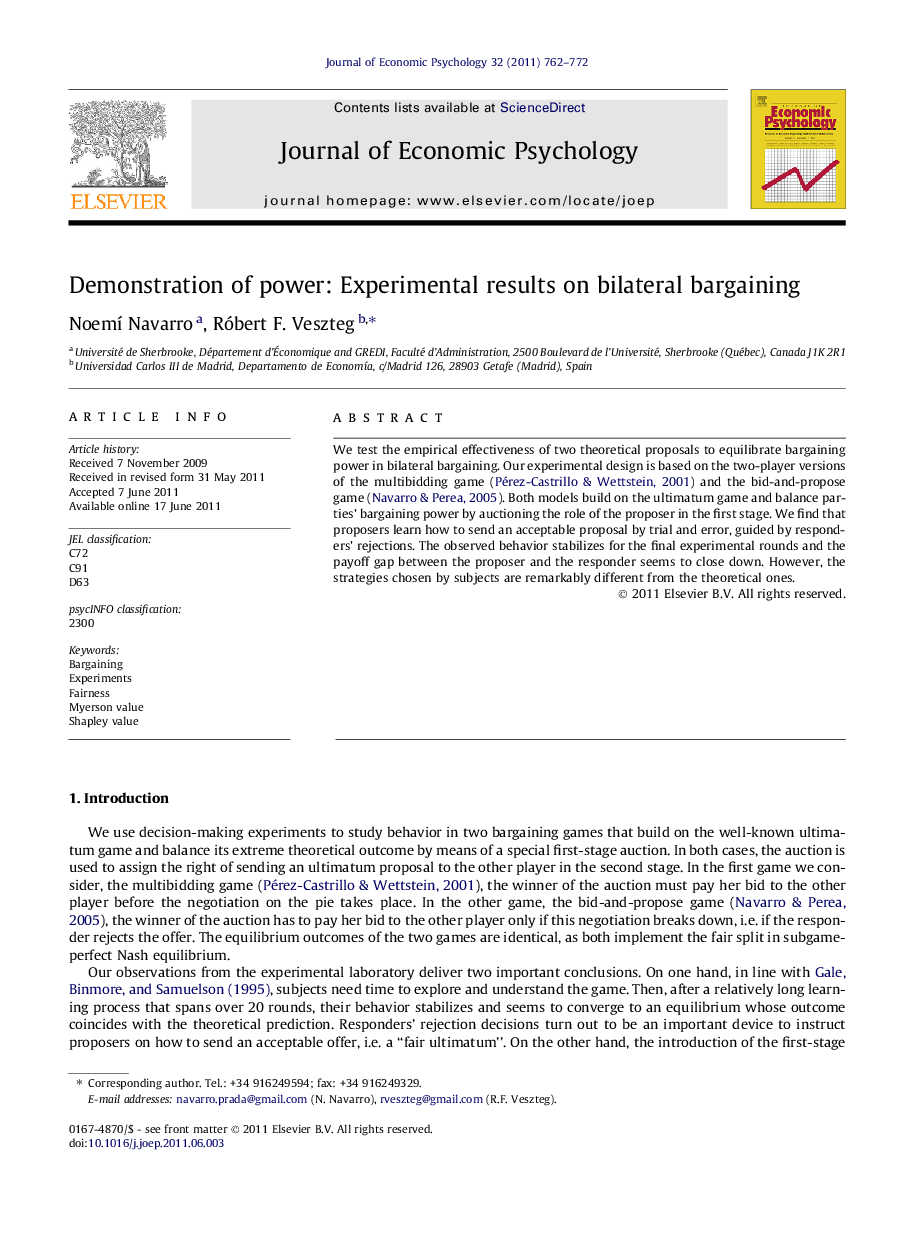| Article ID | Journal | Published Year | Pages | File Type |
|---|---|---|---|---|
| 885203 | Journal of Economic Psychology | 2011 | 11 Pages |
We test the empirical effectiveness of two theoretical proposals to equilibrate bargaining power in bilateral bargaining. Our experimental design is based on the two-player versions of the multibidding game (Pérez-Castrillo & Wettstein, 2001) and the bid-and-propose game (Navarro & Perea, 2005). Both models build on the ultimatum game and balance parties’ bargaining power by auctioning the role of the proposer in the first stage. We find that proposers learn how to send an acceptable proposal by trial and error, guided by responders’ rejections. The observed behavior stabilizes for the final experimental rounds and the payoff gap between the proposer and the responder seems to close down. However, the strategies chosen by subjects are remarkably different from the theoretical ones.
► The auction in the multibidding and bid-and-propose games balances bargaining power. ► Proposers learn to send acceptable offers by trial and error, guided by responders’ rejections. ► Subjects ignore marginal improvements and brake ties in an unexpected way.
